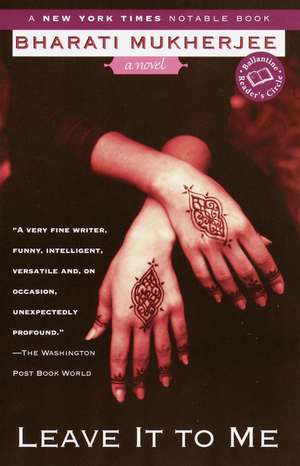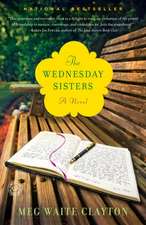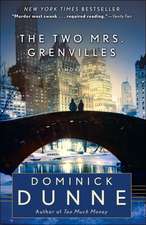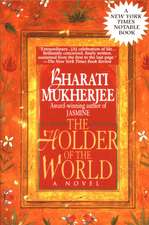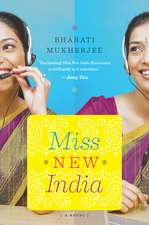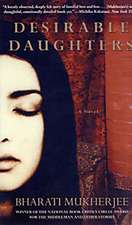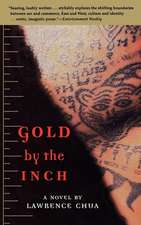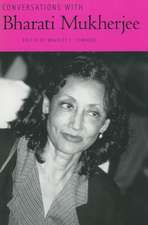Leave It to Me
Autor Bharati Mukherjeeen Limba Engleză Paperback – 31 aug 1998
--The Washington Post Book World
"MUKHERJEE IS FEARLESS . . . DARING AND WITTY . . . Take the wild ride with Debby DiMartino from Albany to San Francisco, from lost child to masked avenger."
--The Boston Globe
"POWERFULLY WRITTEN . . . Debby has no memory of her birth parents. All she knows is that she was born in a remote Indian village, the daughter of a hippie back-packing mother and a mysterious Eurasian father, both of whom have disappeared almost without a trace. . . . Her quest for her biological parents turns into an obsession. . . . Leave It to Me . . . shows Mukherjee at the peak of her craft. . . . Mixing the Greek myth of Electra with the Indian myth of Devi, she sends Devi/Debby careening down on the Bay Area like an elemental force of vengeance."
--San Francisco Chronicle
"DEVI IS A BRILLIANT CREATION--hilarious, horribly knowing and even more horribly oblivious--through whom Bharati Mukherjee, with characteristic and shameless ingenuity, is laying claim to speak for an America that isn't 'other' at all."
--The New York Times Book Review
"STUNNING . . . An astute, ironic, and merciless insight into an aberrant version of the American dream."
--Publishers Weekly (starred review)
Preț: 112.40 lei
Nou
Puncte Express: 169
Preț estimativ în valută:
21.51€ • 23.38$ • 18.08£
21.51€ • 23.38$ • 18.08£
Carte disponibilă
Livrare economică 31 martie-14 aprilie
Preluare comenzi: 021 569.72.76
Specificații
ISBN-13: 9780449003961
ISBN-10: 0449003965
Pagini: 240
Dimensiuni: 142 x 216 x 18 mm
Greutate: 0.36 kg
Editura: BALLANTINE BOOKS
ISBN-10: 0449003965
Pagini: 240
Dimensiuni: 142 x 216 x 18 mm
Greutate: 0.36 kg
Editura: BALLANTINE BOOKS
Extras
In Devigaon, a village a full day's bus ride into desert country west of Delhi, old Hari tells of times before the "long ago" of fairy tale, when celestials battled demons and the Cosmic Spirit revealed itself in surprising forms to devotees. The story that children beg him to repeat at twilight--that smoky quarter hour most full of menace--is of Devi, the eight-armed, flame-bright, lion-riding dispenser of Divine Justice. They know that the Cosmic Spirit (assuming the appearance of gods) continually makes, unmakes and remakes the world they live in. They know that it also created goddess Devi and endowed her with the will to save and the strength to kill, and that it, charged her with the mission of slaying the Buffalo Demon who had usurped the throne in the kingdom of heavenly beings.
And in this village, named after the serene slaughterer of a demon king, the children already know the story's ending. Before twilight blackens, Devi will blow the conchshell call, and brandish in her many arms a lasso, a trident, a fire-tipped spear, a demon-splitting disc, a bow and arrows, a death-dealing staff, a thunder-sparking axe, a pitcher of water and a necklace of blessed beads, and will lead her soldiers on lionback. The Buffalo Demon, inheritor of the brute strength and physical appearance of his buffalo mother and the deceit and rage of his demon father, cunning, and magical powers, will vanquish her men. Some of Devi's soldiers the Buffalo Demon will gore to death; others he will stomp, still more fell with the tempest blasts of his panting breath, and lacerate with the whip-crack of his tail. Then he'll let loose the full ferocity of his bestial hate on the Earth itself. With his hooves, the Buffalo Demon will scour canyon-deep trenches; with his horns, he will shred the sky and scoop out mounds of soil as high as mountains; with his tail, he will churn the calm waves of the ocean into fatal hurricanes. And just as he is about to declare himself destroyer of gods and goddesses, Devi will muster the full powers of vengeance. She will fling her lasso around the demon neck, pierce, strike and slash the demon flesh, pin that demon bulk to the ground with her foot and cut off the usurper's buffalo-head.
While the children, comforted by story, curl into sleep on their bed-pallets, the Cosmic Spirit will smile on its daughter-goddess, then go back to creating, preserving, breaking and re-creating the cosmos as always.
And Devi? The Earth Mother and Warrior Goddess wipes demon blood off weapons and puts them away for the next time they are needed.
Part One
I can almost touch the diamond-hard light of stars and the silky slipperiness of leaves, almost taste smoke softer than clouds and sweeter than memory, almost feel God's breath burn off my sins.
What have I done but what my mothers did? The one who gave me birth, and the one I am just beginning to claim. Like them, I took a god of a special time and place as my guide.
My mothers, luminous as dewdrops in downlight, weightless as the wings of a newborn dragonfly, float towards me from the place where I was born. I have no clear memory of my birthplace, only of the whiteness of its sun, the harshness of its hills, the raspy moan of its desert winds, the desperate suddenness of its twilight: these I see like the pattern of veins on the insides of my eyelids.
I tell myself I must have been left unattended in the sun. Maybe the sand-yellow sun was low in the morning sky and whichever Gray Sister was charged with caring for me had been detained in the fields as the sun mounted. I don't want to believe it was an overcrowded orphanage's scheme to rid itself of a bastard half American. One murder attempt is enough. Some days while shoveling snow off the stoop in Schenectady, I have smelled heady hibiscus-scented breezes; I have felt tropical heat and humidity.
Tonight, in the cabin of this houseboat off Sausalito as curtains of flame dance in the distance and a million flash-bulbs burn and fizzle, and I sit with the head of a lover on my lap, the ferrous taste of fear invades me as though my whole body were tongue.
For all official purposes, like social security cards and unemployment benefits, I am, or was, Debby DiMartino, a fun-loving twenty-three-year-old American girl. I was adopted into a decent Italian-American family in the Hudson Valley. That's the upside of adoption. And believe me, I've approached this situation, my situation, from every angle. The downside is knowing that the other two I owe my short life to were lousy people who'd considered me lousier still and who'd left me to be sniffed at by wild dogs, like a carcass in the mangy shade.
The upside and the downside of being recyclable trash don't quite balance. Debby DiMartino is a lie. Whoever my parents intended for me to be never existed. That unclaimable part of myself is what intrigues me, the part that came to life in a desert village and had the name Baby Clear Water Iris-Daughter until it was christened in a Catholic orphanage. That's the part I want to remember. But there's another part I try to keep secret, the part that sings to moons and dances with stars. With everything I've done, I've tried to find a balance. It's just that Debby DiMartino has no weight, no substance. I had to toss her out.
Cherchez le garcon. There was a boy, back when I was a stubby little thirteen-year-old. He was a twenty-two-year-old graduate student at Syracuse. I had no way of knowing there'd be a growth spurt--I was adopted--I only had my sister Angie to go by, which meant I had nothing to look forward to but getting fat and a puberty that would be a settling down, and out, and not a shooting up.
Wyatt was a lanky, crinkly-blond longhair (he had the first male ponytail I'd ever seen) getting a master's in social work, and I was his project. He had that low, slow, soft voice that just cries out sex, sex, sex! and deep brown eyes that bathed you with attention without ever blinking. The voice, the eyes, they burned at a very low flame, they never flared, but they consumed me just the same. He also had my police file, and he had the power if he ever wanted to use it to fuck up my future, all of which made our relationship an exciting kind of power trip.
Celia Montoya and I used to hang out at the mall, and one day (actually, many days) the temptation got too much and we "liberated" a little candy, some tapes, some perfume and panties--no problem--then we pushed our luck at Radio Shack since nothing was cooler that year than a portable phone. I should have figured out Radio Shack of all places would have some kind of electronic alarm. And the total value of the loot was over a hundred dollars, which automatically sent us to court and gave us a police record, and some sort of correction.
Pappy had connections in court and with the police. Celia had connections, too, but all the wrong kind, and site was out of school and in a facility for girls two days after her appeal. I never saw her again. Me, I got Wyatt, and a chance to erase my record. The penalty was I would do some service, I would read some books and write something about them, I'd stay in school and improve my grades, and I'd talk my problems out in a circle of troubled girls, as we were called, led by Wyatt. I got to stay in school and no one knew about the Circle, or Wyatt.
Celia would never have made it, she would have laughed in his face, or she would have stared at the floor. A couple of other girls couldn't take it either and said Wyatt's voice drove them to drugs and housebreaking. Wyatt was the first to ask me about adoption, what I knew, what I remembered. He put a lot of stress on it, and I know it would have upset Pappy if he'd known that rehabilitation meant bringing up feelings I didn't know I had.
"I've been reading your file, Debby," Wyatt'd say, once we were out of the Circle. "How did the DiMartinos come to adopt you?"
I'd never asked, and they'd never told. Lawyers, they always said, but it had to have started with the Church, all those little pledge envelopes for missions in Asia that Mama still fills out. I knew only that they'd found me in an orphanage run by Gray Nuns.
"You're not even interested?"
"I always figured it was fate."
"Schenectady was fate?"
Wyatt took me out to the animal shelter. It was where he'd worked on weekends and high school summers. It was the place that had formed his philosophy of life. It was the only place where the Ultimates sat side by side. "Love and Death," he said. "Kindness and Killing." He thought he could be the catcher in the pound; everything depended on his keeping his orphans clean enough, making them just a little more appealing, giving them cutesy names like Barbra, walking them and running them in the park. My family always called the animal shelter the pound, and I thought of it, if I thought of it at all, as an alternate lodging between loving homes. You don't usually visualize the dog pound as the palace of love. No one ever told me they gassed puppies and kitties.
"Cuteness is all that counts," Wyatt said. "You have a bad day, you wake up with a dry nose, with dull eyes, you take a nap, you scratch your fleas--it's your life."
"What are you saying?"
"I'm saying you've got a chance, don't blow it. You might never have made it out of that orphanage. Someone must have seen something."
And what could they have seen in a baby girl whose unnamed mother identified herself as Clear Water Iris-Daughter, and whose father, also unnamed, was called Asian National in the adoption papers? The nuns weren't interested in my origins, they didn't care about filling in the gaps of my life; they were into good works. It was the mid-seventies and I was just a garbage sack thrown out on the hippie trail.
There's no passion in the world like that of a thirteen-year-old girl; she'll do anything for love, or what seems like love. She'll interpret anything as a little sign, she'll believe anything he says, she'll do anything to prove herself worthy of his notice. And then the time will come when site begins to feel her own power. I was only thirteen, but I was a knowing thirteen when I didn't want to hide it, and mellow-voiced Wyatt was the first man I showed it to.
Our little Circle meetings grew shorter and shorter, our trips in the country longer and longer. There were motels in the afternoon, flowery pastures, canoe trips. I could ruin him if I wanted, and he knew it. He shared his stash (which I knew he had), and before long he was praising my orphan's maturity, the integrity of shoplifting in a consumer society and of course saying that I was older than my age (at least three years for his sake, I hoped).
Wyatt signed off on my parole, then dropped out of grad school. I had been a bad influence on him, he said. He decided to go to California and work for the Sierra Club or become a nature photographer. Human emotions were too difficult. But he left me with the most important prediction of my life, something that got me through high school and college, and even helps today. I was just a small, dark thing, and he said, "You know, Debby, I can tell you're going to be tall and beautiful very soon, and someday you're going to be rich and powerful." He thought he had everything to do with it.
After Wyatt left, I convinced myself that I was lucky to be all orphan. Front the families I'd been given, I'd scavenge the traits I needed and dump the rest. If a person is given lives to live instead of just one life (Mama's favorite soap), especially lives she hasn't even touched, she'll be far better off for it. Once in a junior high English class, on assignment, when the other girls were composing little rhymed Hallmark verses about love, I raged in rhyming couplets against whole peoples who brawled inside me. The poem shocked me. It throbbed with pains I had no right to feel. That was the first time I'd really cut loose.
Mr. Bullock said, "Debby, that's deep," and he forced me to read the poem out loud in class. And the kids said, "Jeezus, it could be, like, a song, Debby!," which was their highest compliment. Then Mr. Bullock asked, "Have you read Sylvia Plath, Debby?" and I said I didn't know any of the senior high girls, and he laughed. "Then you're a natural poetic talent, Debby," which sounded to me as thrilling as a new zit on the nose. He invited me to join all after-school geek club. I attended twice, but its members were weird and I could feel how easy it would be to weird out too.
Until that poem, I'd been Debby DiMartino, second daughter of Manfred and Serena DiMartino, hardworking, religious parents. In junior high, I'd looked enough like my sister Angie to pass for a real DiMartino, and I expected to ripen and coarsen early, like Mama and like Angie. But I didn't thicken like Angie did, and by my senior year, I was the tallest one in the family, including Pappy. I stayed thin, clear-skinned, dark-haired, amazed at the assertiveness of my body. The gym teacher encouraged me to think volleyball scholarships, and Angie nagged at me to try out mail-order-catalog modeling. My senior portrait was just the kind of thing that you find in People magazine at the Price Chopper, one of those bad-hair, ugly-duckling pictures of some high school cheerleader gone bad or murdered or of some eventually famous movie star.
My junior-year growth spurt ended a few months too early, leaving me a shade below five-nine. I was a tall girl in a small school, a beautiful girl in a plain family, an exotic girl in a very American town. I'd always had this throaty whisper of a voice, couldn't raise it above a satiny purr, in a family of choir singers and a town of chirpy sopranos. But I wasn't tall, beautiful or exotic enough to trust any of it, and so I made up my mind to find out if I was someone special or just another misfit. I didn't write another poem, but I began to understand about mugged identities. There was something to nature over nurture, and to the tyranny of genes. But you pay for all the knowledge you've gained. How could I explain to a Schenectady DiMartino that destiny's the bully you can't outpunch or outsmart? That the Gray Nuns, Mama, Pappy, Angie, Mr. Bullock, Wyatt, the junior high geeks and creeps I've blown off fit into the Big Picture? I need to believe in the bigger picture. Most orphans do.
Who are you when you don't have a birth certificate, only a poorly typed, creased affidavit sworn out by a nun who signs herself Sister Madeleine, Gray Sisters of Charity? And that name? No mother's name, no fathers name, just Baby Clear Water Iris-Daughter meticulously copied out, taking up two full lines, when Father and Mother with long spaces after them are just ink flecks of nonexistence. What are you when you have nightmares and fantasies instead of dates and statistics? And, in place of memory, impressions of white-hot sky and burnt-black leaves? Nothing to keep you on the straight and narrow except star bursts of longing?
We thought Mr. Bullock was giving us a routine assignment, but what if a junior high English teacher with hair in his ears is an agent of destiny? He'd made us read a Robert Frost poem about a bird flying off a snow-dusted bough. "The Muse," he'd encouraged us, "notices the humblest object and the tritest movement and turns them into the gold of passion and poesy."
Mr. Bullock said he wanted for us to write about something we knew, something we knew so well that we didn't see it anymore. And so I wrote about the lacy, summertime shadows of the squat oak that Grandpa DiMartino had planted in the backyard to celebrate his escape from the Bronx--so the family story goes--the day he got the deed to the Schenectady house, and that set me thinking that the grandpa who'd planted that oak and landscaped the garden and put in the lily pond was Angie's grandpa and not mine after all. That made me hear tiny gypsy moth jaws on the tender skin of stalks, and that made me remember other leaf patterns against other horizons. I wrote another about the dogs I'd seen at the pound, pretending that I was alone and that I was a dog myself. Take me, love me, shelter me, my barking said. I felt more deeply than Debby'd ever dared let herself feel. Words ribboned out of me. And when the assignment was done, I felt cheated of places I couldn't draw and of parents I didn't miss. I blamed the poem for robbing me of what I'd never owned. It was as if a psychic with a 900 number had said to me through the poem, You're just on loan to the DiMartinos. Treat them nice, pay your rent, but keep your bags packed.
Back then, in Schenectady, I waited for the call. Not to be a model or a poet, which was to be not extraordinary enough. The call would be to something more special, to satisfy the monstrous cravings of other Debbys hiding inside. I didn't envy Angie as I helped her into the Greyhound bound for Manhattan and her modest transformation of a Hudson Valley accent, hair color, clothes, muscle tone and skin. I knew by then that there was a life beyond the state lines waiting for me to slip into. Star Quality just plays taller and thinner and younger than it really is; second bananas just look older and fatter than they really are. All I'd have to do was be beautiful, be available, and my other life, my real life, would find me.
And in this village, named after the serene slaughterer of a demon king, the children already know the story's ending. Before twilight blackens, Devi will blow the conchshell call, and brandish in her many arms a lasso, a trident, a fire-tipped spear, a demon-splitting disc, a bow and arrows, a death-dealing staff, a thunder-sparking axe, a pitcher of water and a necklace of blessed beads, and will lead her soldiers on lionback. The Buffalo Demon, inheritor of the brute strength and physical appearance of his buffalo mother and the deceit and rage of his demon father, cunning, and magical powers, will vanquish her men. Some of Devi's soldiers the Buffalo Demon will gore to death; others he will stomp, still more fell with the tempest blasts of his panting breath, and lacerate with the whip-crack of his tail. Then he'll let loose the full ferocity of his bestial hate on the Earth itself. With his hooves, the Buffalo Demon will scour canyon-deep trenches; with his horns, he will shred the sky and scoop out mounds of soil as high as mountains; with his tail, he will churn the calm waves of the ocean into fatal hurricanes. And just as he is about to declare himself destroyer of gods and goddesses, Devi will muster the full powers of vengeance. She will fling her lasso around the demon neck, pierce, strike and slash the demon flesh, pin that demon bulk to the ground with her foot and cut off the usurper's buffalo-head.
While the children, comforted by story, curl into sleep on their bed-pallets, the Cosmic Spirit will smile on its daughter-goddess, then go back to creating, preserving, breaking and re-creating the cosmos as always.
And Devi? The Earth Mother and Warrior Goddess wipes demon blood off weapons and puts them away for the next time they are needed.
Part One
I can almost touch the diamond-hard light of stars and the silky slipperiness of leaves, almost taste smoke softer than clouds and sweeter than memory, almost feel God's breath burn off my sins.
What have I done but what my mothers did? The one who gave me birth, and the one I am just beginning to claim. Like them, I took a god of a special time and place as my guide.
My mothers, luminous as dewdrops in downlight, weightless as the wings of a newborn dragonfly, float towards me from the place where I was born. I have no clear memory of my birthplace, only of the whiteness of its sun, the harshness of its hills, the raspy moan of its desert winds, the desperate suddenness of its twilight: these I see like the pattern of veins on the insides of my eyelids.
I tell myself I must have been left unattended in the sun. Maybe the sand-yellow sun was low in the morning sky and whichever Gray Sister was charged with caring for me had been detained in the fields as the sun mounted. I don't want to believe it was an overcrowded orphanage's scheme to rid itself of a bastard half American. One murder attempt is enough. Some days while shoveling snow off the stoop in Schenectady, I have smelled heady hibiscus-scented breezes; I have felt tropical heat and humidity.
Tonight, in the cabin of this houseboat off Sausalito as curtains of flame dance in the distance and a million flash-bulbs burn and fizzle, and I sit with the head of a lover on my lap, the ferrous taste of fear invades me as though my whole body were tongue.
For all official purposes, like social security cards and unemployment benefits, I am, or was, Debby DiMartino, a fun-loving twenty-three-year-old American girl. I was adopted into a decent Italian-American family in the Hudson Valley. That's the upside of adoption. And believe me, I've approached this situation, my situation, from every angle. The downside is knowing that the other two I owe my short life to were lousy people who'd considered me lousier still and who'd left me to be sniffed at by wild dogs, like a carcass in the mangy shade.
The upside and the downside of being recyclable trash don't quite balance. Debby DiMartino is a lie. Whoever my parents intended for me to be never existed. That unclaimable part of myself is what intrigues me, the part that came to life in a desert village and had the name Baby Clear Water Iris-Daughter until it was christened in a Catholic orphanage. That's the part I want to remember. But there's another part I try to keep secret, the part that sings to moons and dances with stars. With everything I've done, I've tried to find a balance. It's just that Debby DiMartino has no weight, no substance. I had to toss her out.
Cherchez le garcon. There was a boy, back when I was a stubby little thirteen-year-old. He was a twenty-two-year-old graduate student at Syracuse. I had no way of knowing there'd be a growth spurt--I was adopted--I only had my sister Angie to go by, which meant I had nothing to look forward to but getting fat and a puberty that would be a settling down, and out, and not a shooting up.
Wyatt was a lanky, crinkly-blond longhair (he had the first male ponytail I'd ever seen) getting a master's in social work, and I was his project. He had that low, slow, soft voice that just cries out sex, sex, sex! and deep brown eyes that bathed you with attention without ever blinking. The voice, the eyes, they burned at a very low flame, they never flared, but they consumed me just the same. He also had my police file, and he had the power if he ever wanted to use it to fuck up my future, all of which made our relationship an exciting kind of power trip.
Celia Montoya and I used to hang out at the mall, and one day (actually, many days) the temptation got too much and we "liberated" a little candy, some tapes, some perfume and panties--no problem--then we pushed our luck at Radio Shack since nothing was cooler that year than a portable phone. I should have figured out Radio Shack of all places would have some kind of electronic alarm. And the total value of the loot was over a hundred dollars, which automatically sent us to court and gave us a police record, and some sort of correction.
Pappy had connections in court and with the police. Celia had connections, too, but all the wrong kind, and site was out of school and in a facility for girls two days after her appeal. I never saw her again. Me, I got Wyatt, and a chance to erase my record. The penalty was I would do some service, I would read some books and write something about them, I'd stay in school and improve my grades, and I'd talk my problems out in a circle of troubled girls, as we were called, led by Wyatt. I got to stay in school and no one knew about the Circle, or Wyatt.
Celia would never have made it, she would have laughed in his face, or she would have stared at the floor. A couple of other girls couldn't take it either and said Wyatt's voice drove them to drugs and housebreaking. Wyatt was the first to ask me about adoption, what I knew, what I remembered. He put a lot of stress on it, and I know it would have upset Pappy if he'd known that rehabilitation meant bringing up feelings I didn't know I had.
"I've been reading your file, Debby," Wyatt'd say, once we were out of the Circle. "How did the DiMartinos come to adopt you?"
I'd never asked, and they'd never told. Lawyers, they always said, but it had to have started with the Church, all those little pledge envelopes for missions in Asia that Mama still fills out. I knew only that they'd found me in an orphanage run by Gray Nuns.
"You're not even interested?"
"I always figured it was fate."
"Schenectady was fate?"
Wyatt took me out to the animal shelter. It was where he'd worked on weekends and high school summers. It was the place that had formed his philosophy of life. It was the only place where the Ultimates sat side by side. "Love and Death," he said. "Kindness and Killing." He thought he could be the catcher in the pound; everything depended on his keeping his orphans clean enough, making them just a little more appealing, giving them cutesy names like Barbra, walking them and running them in the park. My family always called the animal shelter the pound, and I thought of it, if I thought of it at all, as an alternate lodging between loving homes. You don't usually visualize the dog pound as the palace of love. No one ever told me they gassed puppies and kitties.
"Cuteness is all that counts," Wyatt said. "You have a bad day, you wake up with a dry nose, with dull eyes, you take a nap, you scratch your fleas--it's your life."
"What are you saying?"
"I'm saying you've got a chance, don't blow it. You might never have made it out of that orphanage. Someone must have seen something."
And what could they have seen in a baby girl whose unnamed mother identified herself as Clear Water Iris-Daughter, and whose father, also unnamed, was called Asian National in the adoption papers? The nuns weren't interested in my origins, they didn't care about filling in the gaps of my life; they were into good works. It was the mid-seventies and I was just a garbage sack thrown out on the hippie trail.
There's no passion in the world like that of a thirteen-year-old girl; she'll do anything for love, or what seems like love. She'll interpret anything as a little sign, she'll believe anything he says, she'll do anything to prove herself worthy of his notice. And then the time will come when site begins to feel her own power. I was only thirteen, but I was a knowing thirteen when I didn't want to hide it, and mellow-voiced Wyatt was the first man I showed it to.
Our little Circle meetings grew shorter and shorter, our trips in the country longer and longer. There were motels in the afternoon, flowery pastures, canoe trips. I could ruin him if I wanted, and he knew it. He shared his stash (which I knew he had), and before long he was praising my orphan's maturity, the integrity of shoplifting in a consumer society and of course saying that I was older than my age (at least three years for his sake, I hoped).
Wyatt signed off on my parole, then dropped out of grad school. I had been a bad influence on him, he said. He decided to go to California and work for the Sierra Club or become a nature photographer. Human emotions were too difficult. But he left me with the most important prediction of my life, something that got me through high school and college, and even helps today. I was just a small, dark thing, and he said, "You know, Debby, I can tell you're going to be tall and beautiful very soon, and someday you're going to be rich and powerful." He thought he had everything to do with it.
After Wyatt left, I convinced myself that I was lucky to be all orphan. Front the families I'd been given, I'd scavenge the traits I needed and dump the rest. If a person is given lives to live instead of just one life (Mama's favorite soap), especially lives she hasn't even touched, she'll be far better off for it. Once in a junior high English class, on assignment, when the other girls were composing little rhymed Hallmark verses about love, I raged in rhyming couplets against whole peoples who brawled inside me. The poem shocked me. It throbbed with pains I had no right to feel. That was the first time I'd really cut loose.
Mr. Bullock said, "Debby, that's deep," and he forced me to read the poem out loud in class. And the kids said, "Jeezus, it could be, like, a song, Debby!," which was their highest compliment. Then Mr. Bullock asked, "Have you read Sylvia Plath, Debby?" and I said I didn't know any of the senior high girls, and he laughed. "Then you're a natural poetic talent, Debby," which sounded to me as thrilling as a new zit on the nose. He invited me to join all after-school geek club. I attended twice, but its members were weird and I could feel how easy it would be to weird out too.
Until that poem, I'd been Debby DiMartino, second daughter of Manfred and Serena DiMartino, hardworking, religious parents. In junior high, I'd looked enough like my sister Angie to pass for a real DiMartino, and I expected to ripen and coarsen early, like Mama and like Angie. But I didn't thicken like Angie did, and by my senior year, I was the tallest one in the family, including Pappy. I stayed thin, clear-skinned, dark-haired, amazed at the assertiveness of my body. The gym teacher encouraged me to think volleyball scholarships, and Angie nagged at me to try out mail-order-catalog modeling. My senior portrait was just the kind of thing that you find in People magazine at the Price Chopper, one of those bad-hair, ugly-duckling pictures of some high school cheerleader gone bad or murdered or of some eventually famous movie star.
My junior-year growth spurt ended a few months too early, leaving me a shade below five-nine. I was a tall girl in a small school, a beautiful girl in a plain family, an exotic girl in a very American town. I'd always had this throaty whisper of a voice, couldn't raise it above a satiny purr, in a family of choir singers and a town of chirpy sopranos. But I wasn't tall, beautiful or exotic enough to trust any of it, and so I made up my mind to find out if I was someone special or just another misfit. I didn't write another poem, but I began to understand about mugged identities. There was something to nature over nurture, and to the tyranny of genes. But you pay for all the knowledge you've gained. How could I explain to a Schenectady DiMartino that destiny's the bully you can't outpunch or outsmart? That the Gray Nuns, Mama, Pappy, Angie, Mr. Bullock, Wyatt, the junior high geeks and creeps I've blown off fit into the Big Picture? I need to believe in the bigger picture. Most orphans do.
Who are you when you don't have a birth certificate, only a poorly typed, creased affidavit sworn out by a nun who signs herself Sister Madeleine, Gray Sisters of Charity? And that name? No mother's name, no fathers name, just Baby Clear Water Iris-Daughter meticulously copied out, taking up two full lines, when Father and Mother with long spaces after them are just ink flecks of nonexistence. What are you when you have nightmares and fantasies instead of dates and statistics? And, in place of memory, impressions of white-hot sky and burnt-black leaves? Nothing to keep you on the straight and narrow except star bursts of longing?
We thought Mr. Bullock was giving us a routine assignment, but what if a junior high English teacher with hair in his ears is an agent of destiny? He'd made us read a Robert Frost poem about a bird flying off a snow-dusted bough. "The Muse," he'd encouraged us, "notices the humblest object and the tritest movement and turns them into the gold of passion and poesy."
Mr. Bullock said he wanted for us to write about something we knew, something we knew so well that we didn't see it anymore. And so I wrote about the lacy, summertime shadows of the squat oak that Grandpa DiMartino had planted in the backyard to celebrate his escape from the Bronx--so the family story goes--the day he got the deed to the Schenectady house, and that set me thinking that the grandpa who'd planted that oak and landscaped the garden and put in the lily pond was Angie's grandpa and not mine after all. That made me hear tiny gypsy moth jaws on the tender skin of stalks, and that made me remember other leaf patterns against other horizons. I wrote another about the dogs I'd seen at the pound, pretending that I was alone and that I was a dog myself. Take me, love me, shelter me, my barking said. I felt more deeply than Debby'd ever dared let herself feel. Words ribboned out of me. And when the assignment was done, I felt cheated of places I couldn't draw and of parents I didn't miss. I blamed the poem for robbing me of what I'd never owned. It was as if a psychic with a 900 number had said to me through the poem, You're just on loan to the DiMartinos. Treat them nice, pay your rent, but keep your bags packed.
Back then, in Schenectady, I waited for the call. Not to be a model or a poet, which was to be not extraordinary enough. The call would be to something more special, to satisfy the monstrous cravings of other Debbys hiding inside. I didn't envy Angie as I helped her into the Greyhound bound for Manhattan and her modest transformation of a Hudson Valley accent, hair color, clothes, muscle tone and skin. I knew by then that there was a life beyond the state lines waiting for me to slip into. Star Quality just plays taller and thinner and younger than it really is; second bananas just look older and fatter than they really are. All I'd have to do was be beautiful, be available, and my other life, my real life, would find me.
Recenzii
Leave it to Me combines the journalist’s grasp of contemporary culture with the magic realist’s appetite for myth . . .
"Leave it to Me is wittily billed as ‘the Electra story . . . re-imagined for our time,’ and it’s true that it’s a tale of murderous female jealously between generations. But that’s only the beginning. . . . Devi is a brilliant creation–hilarious, horribly knowing and even more horribly oblivious–through whom Bharati Mukherjee, with characteristic and shameless ingenuity, is laying claim to speak for an America that isn’t ‘other’ at all."
–The New York Times Book Review
"MUKHERJEE IS FEARLESS . . . DARING AND WITTY . . . Take the wild ride with Debby DiMartino from Albany to San Francisco, from lost child to masked avenger."
–The Boston Globe
"POWERFULLY WRITTEN . . . Debby has no memory of her birth parents. All she knows is that she was born in a remote Indian village, the daughter of a hippie back-packing mother and a mysterious Eurasian father, both of whom have disappeared almost without a trace. . . . Her quest for her biological parents turns into an obsession. . . . Leave It to Me . . . shows Mukherjee at the peak of her craft. . . . Mixing the Greek myth of Electra with the Indian myth of Devi, she sends Devi/Debby careening down on the Bay Area like an elemental force of vengeance."
–San Francisco Chronicle
"STUNNING . . . An astute, ironic, and merciless insight into an aberrant version of the American dream."
–Publishers Weekly (starred review)
"Dazzling . . . [A] sharp look at the 1960s’ legacy of eroded idealism and scarred kids . . . Mukherjee gives Devi a hip, snappy, ironic voice to describe a world in which nature–and destiny–transcend nurture and no one feels remorse or responsibility."
–New York Daily News
"A psychedelic journey through the meaner side of San Francisco’s free-loving past . . . Leave It to Me challenges us to sympathize with an angry young woman whose overwhelming sense of entitlement leads her to play judge and jury, devouring all in her quest for a new identity."
–People
"With poignancy and wit, Mukherjee makes present-day San Francisco the setting for the age-old story of the foundling in search of her parent and herself."
–Booklist
"Engaging."
–Kirkus Reviews
"A very fine writer, funny, intelligent, versatile and, on occasion, unexpectedly profound."
–The Washington Post Book World
"Leave it to Me is wittily billed as ‘the Electra story . . . re-imagined for our time,’ and it’s true that it’s a tale of murderous female jealously between generations. But that’s only the beginning. . . . Devi is a brilliant creation–hilarious, horribly knowing and even more horribly oblivious–through whom Bharati Mukherjee, with characteristic and shameless ingenuity, is laying claim to speak for an America that isn’t ‘other’ at all."
–The New York Times Book Review
"MUKHERJEE IS FEARLESS . . . DARING AND WITTY . . . Take the wild ride with Debby DiMartino from Albany to San Francisco, from lost child to masked avenger."
–The Boston Globe
"POWERFULLY WRITTEN . . . Debby has no memory of her birth parents. All she knows is that she was born in a remote Indian village, the daughter of a hippie back-packing mother and a mysterious Eurasian father, both of whom have disappeared almost without a trace. . . . Her quest for her biological parents turns into an obsession. . . . Leave It to Me . . . shows Mukherjee at the peak of her craft. . . . Mixing the Greek myth of Electra with the Indian myth of Devi, she sends Devi/Debby careening down on the Bay Area like an elemental force of vengeance."
–San Francisco Chronicle
"STUNNING . . . An astute, ironic, and merciless insight into an aberrant version of the American dream."
–Publishers Weekly (starred review)
"Dazzling . . . [A] sharp look at the 1960s’ legacy of eroded idealism and scarred kids . . . Mukherjee gives Devi a hip, snappy, ironic voice to describe a world in which nature–and destiny–transcend nurture and no one feels remorse or responsibility."
–New York Daily News
"A psychedelic journey through the meaner side of San Francisco’s free-loving past . . . Leave It to Me challenges us to sympathize with an angry young woman whose overwhelming sense of entitlement leads her to play judge and jury, devouring all in her quest for a new identity."
–People
"With poignancy and wit, Mukherjee makes present-day San Francisco the setting for the age-old story of the foundling in search of her parent and herself."
–Booklist
"Engaging."
–Kirkus Reviews
"A very fine writer, funny, intelligent, versatile and, on occasion, unexpectedly profound."
–The Washington Post Book World
Descriere
In her first novel since "The Holder of the World", which Amy Tan called "an amazing literary feat and a masterpiece of storytelling", Bharati Mukherjee presents a stunningly reimagined version of the Electra story.
Notă biografică
Bharati Mukherjee
